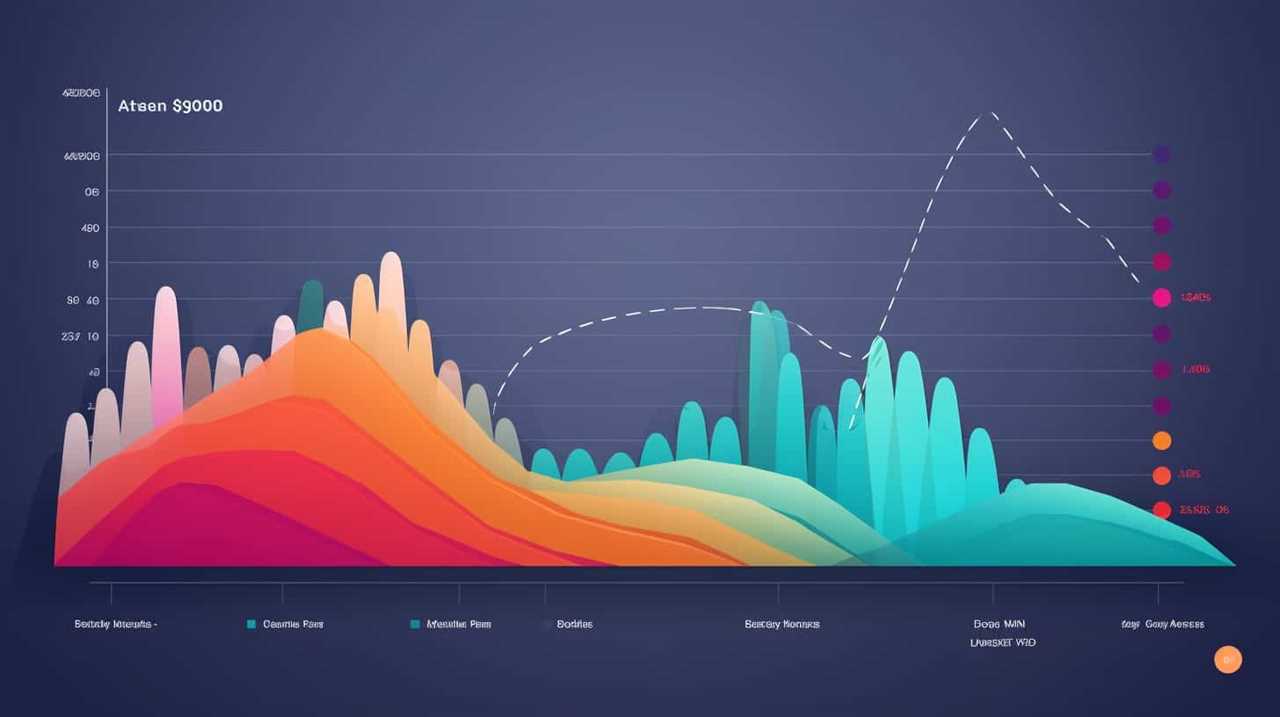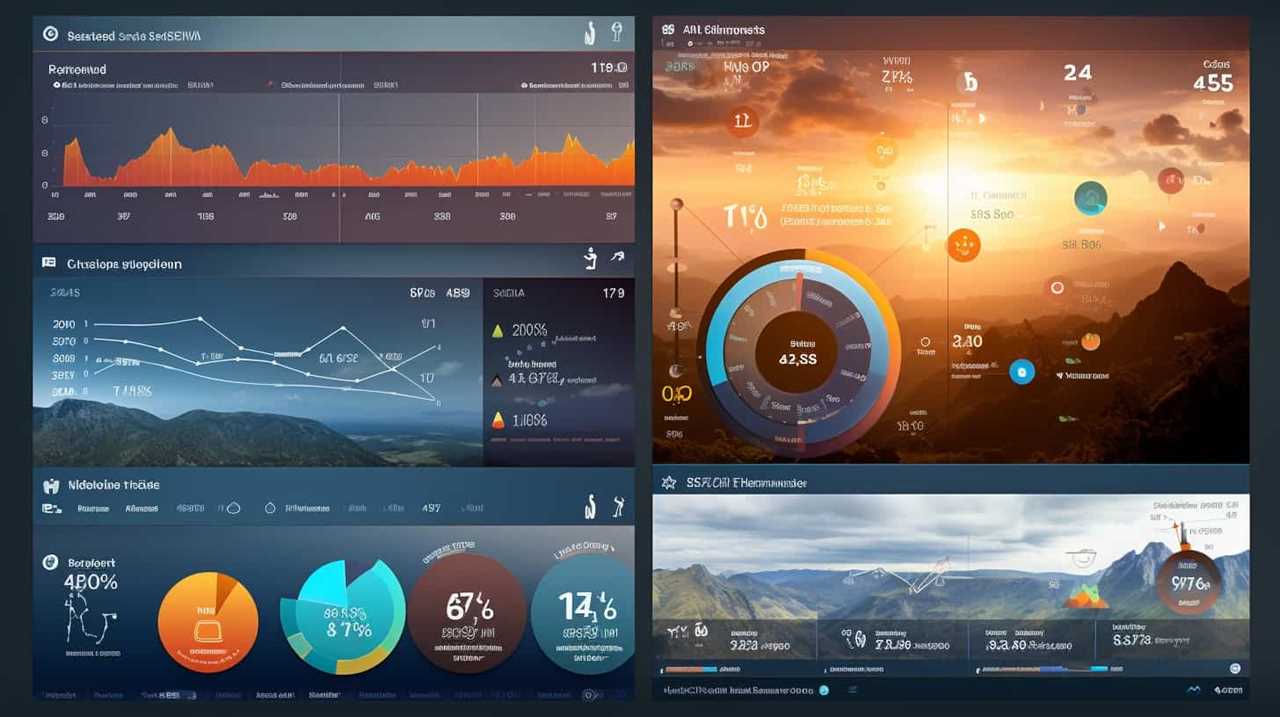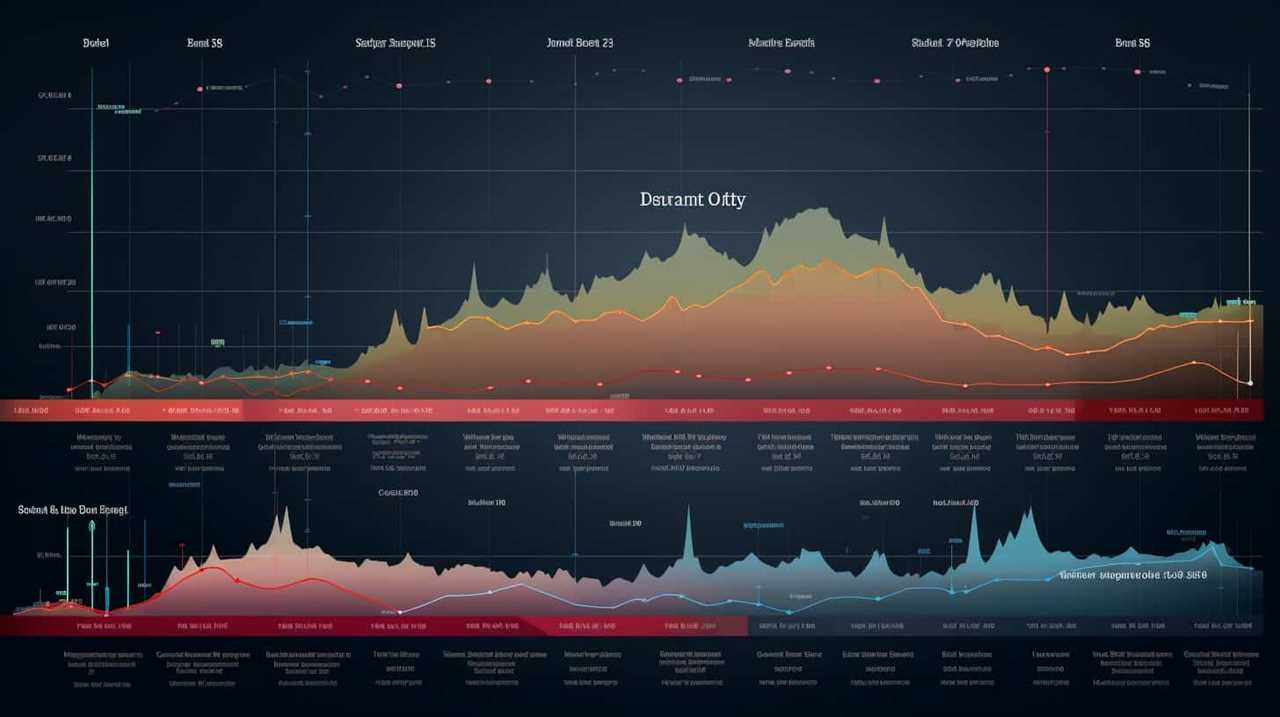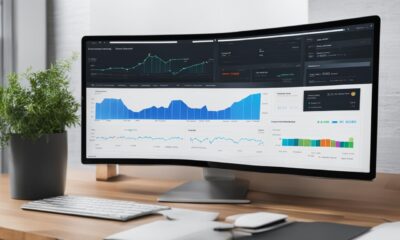Holistic SEO
The Right Keywords: SEO for Independent Writers and Bloggers

Struggling to make your written pieces stand out in the overwhelming sea of online content? Look no further! Elevate your career as a freelance writer or blogger by leveraging the strengths of SEO and the smart application of keywords.
In this article, we will guide you through the importance of keyword research, understanding search engine algorithms, and tips for choosing the perfect keywords.
Get ready to optimize your content and achieve mastery in the digital world!
Key Takeaways
- Thorough keyword research is vital for optimizing content
- Search engine algorithms determine the relevance and ranking of web pages
- Incorporate high search volume keywords into content for better ranking and organic traffic
- Strategic keyword placement attracts search engines and improves rankings
The Importance of Keyword Research
In our journey to optimize our content for search engines, we can’t underestimate the significance of conducting thorough keyword research. Keyword research techniques are essential for independent writers and bloggers who want to increase their visibility and reach a wider audience. By finding high search volume keywords, we can ensure that our content aligns with what users are actively searching for.

To begin our keyword research, we can utilize various techniques. One effective method is to brainstorm potential keywords based on our topic or niche. We can think about what words or phrases our target audience would use when searching for content related to our subject matter. Another technique is to use keyword research tools, such as Google Keyword Planner or SEMrush, to discover popular keywords and phrases in our industry.
Once we’ve a list of potential keywords, it’s important to analyze their search volume. Finding high search volume keywords means that more people are actively searching for content related to those keywords. By incorporating these keywords into our content, we’ve a higher chance of ranking well in search engine results and attracting more organic traffic.
Understanding Search Engine Algorithms
To fully optimize our content for search engines, we must understand the intricacies of search engine algorithms. These algorithms are complex systems that determine the relevance and ranking of web pages in search engine results. By understanding how these algorithms work, we can make informed decisions when it comes to our SEO strategies.
One of the key aspects of search engine algorithms is their ability to adapt and evolve. Search engines constantly update their algorithms to deliver the most relevant and useful results to users. These updates can have a significant impact on our SEO strategies, as they may change the factors that search engines consider important for ranking.

To stay ahead of these changes, it is crucial to keep up with the latest developments in search engine algorithms. This means staying informed about common SEO mistakes to avoid and understanding the impact of search engine updates on our SEO strategies. By doing so, we can ensure that our content remains optimized and visible to our target audience.
Here is a table summarizing some common SEO mistakes to avoid and the impact of search engine updates on SEO strategies:
| Common SEO Mistakes to Avoid | Impact of Search Engine Updates on SEO Strategies |
|---|---|
| Keyword stuffing | Shift towards user intent and quality content |
| Hidden text | Importance of mobile-friendly websites |
| Duplicate content | Emphasis on page load speed and user experience |
| Poor website structure | Focus on user engagement and dwell time |
| Ignoring backlink quality | Increased importance of relevancy and authority |
Tips for Choosing the Right Keywords
How can we effectively choose the right keywords for SEO as independent writers and bloggers?
One crucial step in keyword research is conducting a keyword competition analysis. This analysis helps us understand the level of competition for a specific keyword, allowing us to determine whether it’s worth targeting. By evaluating factors like search volume, domain authority, and backlink profiles of top-ranking pages, we can gauge the difficulty of ranking for a particular keyword.

Another important aspect of keyword selection is using keyword variations effectively. Instead of focusing solely on one primary keyword, it’s beneficial to incorporate related keywords and long-tail variations throughout our content. This not only helps us target a wider range of search queries but also improves the overall relevance and depth of our content.
To ensure effective keyword usage, we should avoid stuffing our content with keywords. Rather, we should aim for a natural and seamless integration of keywords within our writing. By using keywords in titles, headings, meta descriptions, and throughout the body of our content, we can optimize our posts for search engines without sacrificing the reader’s experience.
Ultimately, choosing the right keywords requires a combination of research, analysis, and creativity. By understanding keyword competition and using variations effectively, we can improve our chances of ranking higher in search engine results and attracting more organic traffic to our websites or blogs.
Incorporating Keywords in Blog Titles and Headings
When it comes to incorporating keywords in blog titles and headings, there are a few key points to keep in mind.

First and foremost, keyword placement is of utmost importance in order to optimize your content for search engines.
Additionally, it’s crucial to strike a balance between SEO and readability, ensuring that your titles and headings are both keyword-rich and engaging for your readers.
Keyword Placement Importance
In optimizing our blog posts for search engine visibility, we recognize the significance of incorporating keywords in blog titles and headings through the use of strategic placement. Keyword placement techniques play a crucial role in attracting the attention of search engines and improving our organic rankings.
When crafting blog titles and headings, it’s important to include relevant keywords that accurately reflect the content of our posts. By strategically placing these keywords at the beginning of our titles and headings, we can signal to search engines that our content is relevant and valuable.

Furthermore, incorporating keywords in blog titles and headings also helps in optimizing meta descriptions. Meta descriptions are brief summaries of our blog posts that appear in search engine results. By including keywords in our titles and headings, we can ensure that these keywords are also present in our meta descriptions, increasing the chances of our content being clicked on and visited by users.
Optimizing Blog Headings
To optimize our blog headings and incorporate keywords in blog titles and headings, we continue building on the importance of strategic keyword placement discussed earlier. When it comes to optimizing blog headings, there are certain techniques that can help make them more compelling and effective in attracting readers. One common mistake to avoid is using vague or generic headings that don’t provide any specific information about the content of the blog post. Instead, aim for headings that are concise, specific, and engaging. Another mistake to avoid is keyword stuffing, where you cram too many keywords into your headings in an unnatural way. Instead, focus on incorporating relevant keywords naturally and organically.
Here’s an example of a table that showcases some techniques for writing compelling blog headings:
| Technique | Example |
|---|---|
| Use numbers | "5 Ways to Boost SEO" |
| Ask a question | "Are You Making These Common Keyword Mistakes?" |
| Make it actionable | "How to Optimize Your Blog Headings for SEO" |
| Create curiosity | "Discover the Secret to Writing Irresistible Blog Headings" |
Balancing SEO and Readability
We frequently strive to balance SEO and readability by incorporating keywords in our blog titles and headings. This allows us to optimize our content for search engines while still maintaining a high level of readability for our audience. Finding the right balance between SEO and writing is crucial in order to attract organic traffic and engage readers.

Here are three key points to consider when incorporating keywords in blog titles and headings:
- Choose relevant keywords: Select keywords that accurately represent the content of your blog post and align with what your target audience is searching for.
- Avoid keyword stuffing: Overusing keywords can negatively impact readability and make your content appear spammy. It’s important to strike a balance and use keywords naturally within your titles and headings.
- Maintain a clear and concise structure: Make sure your blog titles and headings are informative, compelling, and easy to understand. Incorporate keywords in a way that enhances the overall readability and flow of your content.
Optimizing Content With Keywords
When it comes to optimizing content with keywords, there are two important points to consider: keyword density and placement, and the importance of long-tail keywords.
We need to ensure that our content has an appropriate keyword density, meaning that our keywords are used in a way that’s natural and not excessive.
Additionally, incorporating long-tail keywords can help us target more specific and niche topics, improving our chances of attracting the right audience.

Keyword Density and Placement
Optimizing content with keywords involves strategically incorporating an ideal density and placement of relevant keywords to enhance search engine optimization. To effectively optimize your content, consider the following:
- Keyword Density: This refers to the percentage of times a keyword appears in your content compared to the total word count. It’s important to strike a balance between using keywords enough to signal their relevance to search engines, but not so much that it feels forced or unnatural.
- Keyword Prominence: This refers to the placement of keywords within your content. Search engines tend to give more weight to keywords that appear in headings, titles, and the beginning of paragraphs. Placing keywords strategically in these areas can help improve your search engine rankings.
- Keyword Variation: Using different variations of your target keywords can help you capture a wider range of search queries. This includes synonyms, related terms, and long-tail keywords.
By understanding and implementing these strategies, you can optimize your content with keywords to improve your search engine visibility and drive more organic traffic to your website.
Transitioning into the subsequent section, let’s now explore the importance of long-tail keywords.
Long-Tail Keywords Importance
To optimize our content with keywords, it’s crucial to understand the importance of long-tail keywords.

Long-tail keywords are specific and targeted phrases that help us reach our desired audience. By targeting specific audiences with long-tail keywords, we can attract more relevant traffic and increase the chances of conversions.
These keywords also play a significant role in optimizing niche topics and content. When our content focuses on a specific niche, using long-tail keywords helps us stand out and establish ourselves as experts in that particular area.
Tracking and Analyzing Keyword Performance
In our experience, tracking and analyzing keyword performance over time has been a crucial aspect of optimizing SEO for independent writers and bloggers. By monitoring how our chosen keywords perform, we can make informed decisions about our content strategy and improve our chances of ranking higher in search engine results.
Here are three key ways in which we track and analyze keyword performance:

- Utilizing keyword performance tracking tools: We rely on tools like Google Analytics and SEMrush to gather data on how our keywords are performing. These tools provide valuable insights such as search volume, click-through rates, and conversion rates, allowing us to make data-driven decisions.
- Analyzing keyword competition: We closely examine the competition for our chosen keywords to understand how difficult it will be to rank for them. By assessing the competition, we can determine if it’s worth investing time and effort into optimizing for a particular keyword or if we should focus on less competitive alternatives.
- Monitoring keyword trends: Keyword trends change over time, and it’s important to stay up-to-date. We use tools like Google Trends to identify emerging keywords or topics that are gaining popularity. By incorporating these trends into our content strategy, we can attract more organic traffic and stay ahead of the competition.
Tracking and analyzing keyword performance allows us to refine our SEO strategy, attract more targeted traffic, and ultimately increase our visibility and success as independent writers and bloggers.
Conclusion
In the vast online landscape, keywords act as guiding stars for independent writers and bloggers. Like a compass pointing to hidden treasures, keyword research helps us navigate the intricate web of search engine algorithms.
By incorporating the right keywords into our content, we unlock doors to higher visibility and increased traffic. Just as a painter carefully chooses their colors to create a masterpiece, we must select our keywords with precision and artistry.
So let’s embrace the power of keywords and watch our words shine bright in the digital universe.

Holistic SEO
Guide to Holistic SEO for Optimal Website Performance

Welcome to our detailed guide on Complete SEO for maximizing website performance.
Are you ready to master the art of driving organic traffic and improving your online presence?
In this article, we will delve into the importance of holistic SEO and provide you with practical on-page optimization techniques, off-page optimization strategies, and technical SEO best practices.
We will also explore how to measure and analyze your website’s performance to ensure continuous growth.
Get ready to take your website to the next level!
Key Takeaways
- User experience is crucial for website performance, leading to longer stay and higher conversion rates.
- Integrating social media enhances holistic SEO strategy, increasing audience engagement, brand awareness, and traffic.
- On-page optimization techniques, such as keyword research and content optimization, improve website visibility and ranking on search engine result pages (SERPs).
- Off-page optimization strategies, including guest blogging and backlink building, enhance website visibility and organic traffic.
Importance of Holistic SEO
In our experience, holistic SEO is vital for achieving optimal website performance. The role of user experience in holistic SEO can’t be overstated. When users have a positive experience on your website, they’re more likely to stay longer, explore further, and ultimately convert into customers. This is why it’s important to focus on elements such as page load speed, mobile responsiveness, and intuitive navigation.
Additionally, integrating social media into your holistic SEO strategy can have numerous benefits. Social media platforms provide an opportunity to engage with your audience, build brand awareness, and drive traffic to your website. By sharing valuable content and encouraging social sharing, you can increase your online visibility and attract more organic traffic.
As we transition into the subsequent section about on-page optimization techniques, it’s important to remember that a holistic SEO approach considers all aspects of your website to ensure maximum performance.
On-Page Optimization Techniques
To optimize your website’s performance, we’ll now delve into the subtopic of on-page optimization techniques. On-page optimization plays a crucial role in improving your website’s visibility and ranking on search engine result pages (SERPs).
Two key components of on-page optimization are keyword research and content optimization.
Keyword research involves identifying the most relevant and high-performing keywords that align with your website’s content and target audience. By conducting comprehensive keyword research, you can optimize your website’s content to increase its chances of ranking higher in search engine results.
Content optimization focuses on optimizing the various elements on your web pages, such as headings, meta tags, URLs, and image alt text, to make them more search engine friendly. This includes incorporating target keywords strategically throughout your content and ensuring it’s relevant, engaging, and well-structured.
Off-Page Optimization Strategies
We will now explore the effectiveness of incorporating off-page optimization strategies into our holistic SEO approach. Off-page optimization refers to the techniques used outside of our website to improve search engine rankings.
Two key strategies for off-page optimization are guest blogging and backlink building.
Guest blogging involves writing and publishing content on other websites within our industry. This allows us to showcase our expertise, reach a wider audience, and build valuable backlinks to our website.
Backlink building is the process of acquiring links from other websites that point back to our own. These links act as votes of confidence and authority, signaling to search engines that our website is trustworthy and relevant.
By implementing these off-page optimization strategies, we can enhance our website’s visibility, increase organic traffic, and improve search engine rankings.
It’s essential to have a well-rounded SEO approach that includes both on-page and off-page optimization techniques to achieve optimal website performance.
Technical SEO Best Practices
Continuing our exploration of effective off-page optimization strategies, let’s now delve into the realm of technical SEO best practices.
When it comes to optimizing your website for search engines, conducting an SEO audit is crucial. An SEO audit checklist can help ensure that all technical aspects of your website are in order. It involves assessing factors such as website speed, mobile-friendliness, URL structure, and metadata optimization.

Another important aspect of technical SEO is keyword research. By utilizing keyword research techniques, you can identify the most relevant and high-performing keywords to target on your website. This will help improve your website’s visibility and drive organic traffic.
Technical SEO plays a vital role in optimizing your website’s performance and ensuring that it’s easily discoverable by search engines.
Measuring and Analyzing Website Performance
As we delve into the realm of measuring and analyzing website performance, let’s explore the importance of utilizing data-driven insights to optimize our website for optimal results.
Website analytics play a crucial role in understanding how our website is performing and identifying areas for improvement. By analyzing metrics such as traffic sources, page views, bounce rate, and conversion rate, we can gain valuable insights into user behavior and preferences.
These insights allow us to make informed decisions about our website’s design, content, and marketing strategies. Monitoring conversion rate is especially important as it directly impacts our website’s effectiveness in achieving its goals, whether it’s generating leads, making sales, or increasing engagement.
Frequently Asked Questions
How Long Does It Take to See Results From Holistic SEO Efforts?
On average, it takes time to see results from holistic SEO efforts. Success is measured by tracking website performance over time. This guide provides insights on optimizing SEO for optimal website performance.
Can I Implement Holistic SEO Strategies on My Own, or Do I Need to Hire an SEO Agency?
Implementing holistic SEO strategies on your own or hiring an agency? Weigh the pros and cons. DIY can save money but requires time and expertise. Hiring an agency provides expertise but can be costly. Measure success through improved website performance.
What Are Some Common Mistakes to Avoid When Implementing Holistic Seo?
When implementing holistic SEO, it’s important to avoid common mistakes to ensure optimal website performance. By understanding the benefits of holistic SEO in e-commerce websites, we can achieve mastery in our SEO strategies.
Are There Any Specific Industries or Types of Websites That Can Benefit the Most From Holistic Seo?
In our experience, specific industries or types of websites that can benefit the most from holistic SEO include e-commerce, healthcare, and local businesses. Key factors to consider for successful implementation are keyword research, content optimization, and technical SEO.
How Does Holistic SEO Differ From Traditional SEO Practices?
Holistic SEO differs from traditional SEO practices in its focus on long-term success and a comprehensive approach. It emphasizes the benefits of optimizing all aspects of a website, including content, user experience, and technical elements, for optimal performance and search engine visibility.
What Are the Key Strategies to Achieve Full-Scale Website Optimization with Holistic SEO?
Implementing holistic seo website optimization requires a combination of key strategies. Firstly, conducting comprehensive keyword research to understand user intent is crucial. Next, optimizing on-page elements such as meta tags, headers, and content structure ensure search engines understand your website fully. Additionally, creating unique and valuable content, optimizing site speed, and prioritizing mobile responsiveness contribute to a holistic SEO approach. Building quality backlinks and monitoring analytics regularly further refine optimization efforts.
Conclusion
In conclusion, implementing holistic SEO is essential for achieving optimal website performance. By focusing on both on-page and off-page optimization techniques, as well as technical SEO best practices, you can boost your website’s visibility and organic traffic.
It’s like tending to a well-maintained garden, where each aspect contributes to the overall beauty and health of the plants. By measuring and analyzing website performance, you can continuously improve and refine your SEO strategy, ensuring long-term success.

Holistic SEO
Mastering Holistic SEO for Full-Scale Website Optimization

Are you prepared to master comprehensive SEO in order to improve your entire website? We are here to help you.
In this article, we’ll guide you through the fundamentals of holistic SEO, from keyword research and analysis to on-page and off-page optimization techniques.
We’ll also show you how to measure and analyze SEO performance to ensure maximum results.
Get ready to take your website to the next level and achieve true mastery in the world of SEO.
Let’s dive in.
Key Takeaways
- Content marketing strategies attract and engage the target audience.
- Thorough keyword research uncovers valuable keywords.
- User experience optimization enhances engagement and conversions.
- Mastering keyword research maximizes online visibility.
The Fundamentals of Holistic SEO
When implementing holistic SEO strategies, we prioritize understanding the fundamentals of optimizing a website for full-scale performance. One of the key aspects of holistic SEO is content marketing strategies. By creating valuable and relevant content, we can attract and engage our target audience while also improving our website’s visibility in search engine results. This involves conducting thorough keyword research, crafting compelling headlines, and optimizing our content with relevant keywords and meta tags.
Another fundamental aspect of holistic SEO is user experience optimization. It’s crucial to ensure that our website provides a seamless and enjoyable experience for users. This includes optimizing website speed, improving navigation and site structure, and making our content easily accessible and readable. By prioritizing user experience, we can enhance engagement, increase conversions, and improve overall website performance.
Keyword Research and Analysis
To continue our discussion on holistic SEO, let’s delve into the importance of keyword research and analysis for optimizing a website’s performance.
Keyword research is a critical step in understanding the search behavior of your target audience and identifying the most relevant and valuable keywords to target.
Here are four key reasons why keyword research and analysis are crucial for website optimization:
- Identify high-value keywords: By conducting competitive analysis and researching industry trends, you can uncover valuable keywords that have high search volume and low competition.
- Discover long tail keywords: Long tail keywords are more specific and less competitive, allowing you to target niche audiences and drive targeted traffic to your website.
- Optimize content: Keyword research helps you optimize your website content by strategically incorporating relevant keywords into your titles, headings, meta tags, and body content.
- Stay ahead of the competition: By continuously analyzing keywords and monitoring your competitors’ keyword strategies, you can stay ahead in the search rankings and attract more organic traffic.
Mastering keyword research and analysis is essential for achieving full-scale website optimization and maximizing your online visibility.
On-Page Optimization Techniques
Now let’s explore On-Page Optimization Techniques, which play a crucial role in enhancing a website’s performance and visibility.
On-page optimization focuses on optimizing individual web pages to improve their search engine rankings and attract more organic traffic. One key aspect of on-page optimization is content optimization, which involves creating high-quality, relevant, and keyword-rich content that resonates with your target audience.
This includes using appropriate headings, subheadings, and incorporating relevant keywords naturally throughout the content. Another important on-page optimization technique is optimizing meta tags, such as title tags and meta descriptions.
These tags provide a concise summary of the page’s content and help search engines understand what the page is about. By optimizing these elements, you can increase the chances of your website ranking higher in search engine results.
In the next section, we’ll delve into off-page optimization strategies to further enhance your website’s visibility and authority.
Off-Page Optimization Strategies
Continuing from the previous subtopic, we can explore off-page optimization strategies to further enhance our website’s visibility and authority. Off-page optimization focuses on improving our website’s reputation and credibility through external factors. Here are four key strategies to consider:
- Link Building: Building high-quality backlinks from reputable websites can significantly improve our website’s search engine rankings. It’s important to focus on acquiring natural and relevant links that demonstrate our authority and expertise in our industry.
- Social Media Presence: Having an active and engaging presence on social media platforms can help increase brand awareness, drive traffic to our website, and improve search engine visibility. It’s crucial to create valuable content and engage with our audience to build a strong online community.
- Guest Blogging: Collaborating with influential bloggers or industry experts to publish guest posts on their websites can help us reach a wider audience and gain valuable backlinks. It’s essential to choose relevant and reputable websites that align with our niche.
- Online Reputation Management: Monitoring and managing our online reputation is crucial for building trust and credibility. Responding to customer reviews, addressing negative feedback, and actively managing our brand image can positively impact our website’s visibility and authority.
By implementing these off-page optimization strategies, we can enhance our website’s visibility, credibility, and ultimately improve our overall SEO performance.
In the next section, we’ll explore the importance of measuring and analyzing SEO performance to ensure continuous improvement.
Measuring and Analyzing SEO Performance
Measuring and analyzing SEO performance is essential for evaluating the effectiveness of our optimization efforts and identifying areas for improvement. Without proper tracking and analysis of SEO data, we would be blindly implementing strategies without knowing whether they are yielding the desired results. By monitoring key metrics such as organic traffic, keyword rankings, and conversion rates, we can gain valuable insights into the performance of our website and make informed decisions to drive better results.
In addition to tracking our own SEO performance, competitor analysis is also crucial for staying ahead in the game. By analyzing the SEO strategies of our competitors, we can identify opportunities and uncover areas where we can outperform them. This involves evaluating their keyword rankings, backlink profiles, and content strategies to gain a competitive edge.
To help visualize the importance of measuring and analyzing SEO performance, here is a table showcasing some key metrics and their significance:
| Metric | Significance |
|---|---|
| Organic Traffic | Indicates the amount of traffic generated through search engines, reflecting the reach of our website. |
| Keyword Rankings | Shows how well our website ranks for targeted keywords, indicating visibility and competitiveness. |
| Conversion Rates | Measures the percentage of visitors who take desired actions, providing insights into website effectiveness. |
Frequently Asked Questions
What Is the Impact of Holistic SEO on Website Loading Speed?
The impact of holistic SEO on website loading speed is significant. By optimizing various elements such as code, images, and server response time, holistic SEO improves website performance, resulting in faster loading times and better rankings.
How Can I Optimize My Website for Voice Search Using Holistic SEO Techniques?
To optimize our website for voice search, we employ holistic SEO techniques. By focusing on keyword research, mobile optimization, and natural language content, we ensure our site is primed for voice search queries.
Are There Any Specific SEO Techniques for Optimizing Mobile Websites?
Yes, there are specific SEO techniques for optimizing mobile websites. A mobile first approach and responsive design are crucial. By prioritizing mobile users and ensuring a seamless experience, you can improve search rankings and overall website performance.
Can You Provide Examples of Successful Holistic SEO Strategies Implemented by Major Brands?
Successful holistic SEO strategies implemented by major brands showcase the importance of website loading speed. These brands prioritize optimization techniques such as mobile responsiveness, quality content creation, backlink building, and user experience enhancement.
How Does Holistic SEO Contribute to Improving User Experience on a Website?
Improving website usability and enhancing content relevance are key aspects of holistic SEO. By optimizing user experience, we ensure that visitors find what they need quickly and easily, increasing engagement and conversions.
What is the Difference Between Comprehensive SEO and Holistic SEO?
When it comes to digital marketing strategies, understanding the difference between comprehensive SEO and holistic SEO is crucial. While comprehensive SEO focuses on optimizing specific elements of a website to improve its search engine rankings, holistic SEO takes a broader approach and encompasses all aspects of an online presence, including content marketing. By integrating comprehensive seo in content marketing efforts, businesses can ensure their strategies align with search engine algorithms and reach a wider audience.
Conclusion
In conclusion, mastering holistic SEO is the ultimate key to unlocking full-scale website optimization. By seamlessly integrating keyword research, on-page optimization techniques, and off-page optimization strategies, we can achieve remarkable results in our SEO performance.

With a keen eye for analyzing and measuring our efforts, we can strategically optimize our website to attract maximum organic traffic and dominate the digital landscape.
Don’t settle for mediocre SEO, go all-in with holistic optimization and watch your website soar to new heights.
Holistic SEO
Impact of Social Media on Holistic SEO Practices

In the digital world, social media plays a crucial role in comprehensive SEO strategies. It helps enhance visibility, build brand awareness, and boost user engagement.
With its power to amplify content and strengthen online reputation, social media acts as a beacon, guiding our website towards higher search engine rankings and organic reach.
As we embark on this journey, let us delve into the symbiotic relationship between social media and holistic SEO, unveiling the impact it holds for our mastery in the digital realm.
Key Takeaways
- Social media platforms can be effectively utilized to increase visibility and brand awareness.
- Collaborating with influencers can boost brand visibility and reach a wider audience.
- Analyzing social media analytics helps to understand user behavior and optimize website traffic.
- Leveraging social media strategies can enhance SEO practices and improve search engine rankings.
Increased Visibility and Brand Awareness
To increase visibility and brand awareness, it’s essential that we utilize social media platforms effectively.
Social media advertising and influencer marketing play a crucial role in achieving these goals. By running targeted ad campaigns on platforms like Facebook, Instagram, and Twitter, we can reach a wider audience and increase our brand’s exposure. These platforms offer advanced targeting options, allowing us to reach specific demographics based on factors like age, location, and interests.
Additionally, collaborating with influencers who’ve a large and engaged following can significantly boost our brand’s visibility. Influencer marketing allows us to tap into the trust and influence that these individuals have built with their audience. By aligning our brand with influencers that resonate with our target market, we can increase awareness and credibility, leading to a higher likelihood of conversions and customer loyalty.
Improved Website Traffic and User Engagement
As we continue exploring the impact of social media on holistic SEO practices, it’s important to note how it contributes to improved website traffic and user engagement.
Social media analytics play a crucial role in understanding user behavior and preferences, allowing us to optimize our website to drive more targeted traffic. By analyzing data from social media platforms, we can identify the type of content that resonates with our target audience and tailor our SEO strategies accordingly.
Furthermore, influencer partnerships can significantly boost website traffic and user engagement. Collaborating with influencers who have a large following and influence in our industry can help us reach a wider audience and increase brand visibility. These partnerships can lead to higher engagement rates, increased website visits, and ultimately, improved search engine rankings.
With these tactics in place, we can ensure that our website receives higher traffic and engages users effectively. This sets the stage for the subsequent section on enhanced content distribution and amplification.
Enhanced Content Distribution and Amplification
We optimize our content distribution and amplify our reach through social media channels. By strategically targeting our outreach efforts and forming influencer partnerships, we ensure that our content reaches the right audience and receives maximum exposure. Through targeted outreach, we identify and engage with individuals and communities who are most likely to be interested in our content. This helps us connect with our target audience on a deeper level, fostering stronger relationships and driving higher engagement. Additionally, by partnering with influencers who have a strong following and influence in our niche, we are able to leverage their reach and credibility to amplify the distribution of our content. This results in increased visibility, brand awareness, and ultimately, higher conversions.
| Targeted Outreach | Influencer Partnerships |
|---|---|
| Identify relevant individuals and communities | Collaborate with influencers in our niche |
| Engage with target audience on a deeper level | Leverage their reach and credibility |
| Foster stronger relationships | Amplify distribution of content |
| Drive higher engagement | Increase visibility and brand awareness |
Strengthened Online Reputation and Credibility
Our strong online reputation and credibility are key assets in building trust with our audience. In today’s digital age, where information is readily available and opinions can spread quickly, it’s essential to manage our online credibility effectively. Reputation management plays a vital role in establishing and maintaining a positive image for our brand.
Here are four reasons why a strengthened online reputation is crucial:
- Increased trust: When our audience sees positive reviews, testimonials, and recommendations from others, it enhances their trust in our brand and establishes us as a credible source.
- Improved brand perception: A strong online reputation helps shape how our audience perceives our brand. Positive feedback and interactions can contribute to a positive brand image.
- Enhanced customer loyalty: When customers trust our brand, they’re more likely to stay loyal and recommend our products or services to others.
- Competitive advantage: In a crowded online marketplace, a strong online reputation sets us apart from our competitors. It gives us an edge and attracts potential customers who value credibility and reliability.
Boosted Search Engine Rankings and Organic Reach
Through the integration of social media, we can achieve higher search engine rankings and expand our organic reach. Social media advertising and influencer partnerships play a crucial role in boosting our website’s visibility and driving organic traffic.
Social media advertising allows us to target specific demographics and promote our content to a wider audience. By leveraging the advanced targeting options provided by social media platforms, we can reach users who are more likely to engage with our website and increase our chances of ranking higher in search engine results.
In addition, influencer partnerships enable us to tap into the existing follower base of popular influencers. By collaborating with influencers who align with our brand values, we can leverage their influence to reach a larger audience and drive more organic traffic to our website. This increased visibility can lead to higher search engine rankings, as search engines often prioritize websites with higher organic traffic.
Frequently Asked Questions
How Can Social Media Impact the Overall Visibility and Brand Awareness of a Business?
Social media’s impact on brand perception and leveraging social media influencers for business growth are key factors in increasing overall visibility and brand awareness. These strategies are essential for holistic SEO practices.
What Strategies Can Be Implemented to Improve Website Traffic and User Engagement Through Social Media Platforms?
To improve website traffic and user engagement through social media platforms, we can implement strategies such as website optimization and social media advertising. These tactics can increase visibility and attract more visitors to our site.
How Does Social Media Contribute to Enhanced Content Distribution and Amplification?
Social media reach is crucial for content amplification. It helps in enhancing content distribution by reaching a wider audience, increasing visibility, and driving traffic to websites. Social media’s impact on content amplification cannot be underestimated.
What Are Some Effective Ways to Strengthen Online Reputation and Credibility Using Social Media?
To build trust and establish authority using social media, we focus on strategies like consistently sharing valuable content, engaging with our audience, and showcasing positive customer testimonials. These tactics enhance our online reputation and credibility.
Can Social Media Efforts Alone Boost Search Engine Rankings and Organic Reach, or Should They Be Combined With Other SEO Practices?
Social media efforts alone may not boost search engine rankings and organic reach. Combining them with other SEO practices is crucial. Integration between social media and SEO is necessary for effective results. Social media analytics and measurement play a significant role in achieving mastery.
What Are the Key Ways That Social Media Influences Holistic SEO?
Social media’s impact on holistic seo is substantial. Firstly, it enhances website visibility by allowing businesses to share content and engage with their audience. Secondly, social signals from platforms like Facebook and Twitter contribute to search engines’ ranking algorithms. Lastly, social media drives organic traffic, which increases the likelihood of gaining quality backlinks. Overall, integrating social media into SEO strategy is essential for online success.
Conclusion
In conclusion, the impact of social media on holistic SEO practices is undeniable.
By leveraging social media platforms, businesses can increase their visibility and brand awareness, drive more website traffic and user engagement, distribute and amplify their content, and strengthen their online reputation and credibility.
This ultimately leads to boosted search engine rankings and organic reach.
Social media is like a powerful engine, propelling businesses towards their SEO goals with speed and efficiency.
-

 Expert Content Authority3 months ago
Expert Content Authority3 months agoThe Pillar of SEO: Why Content Consistency Matters Most
-

 Learning Center3 months ago
Learning Center3 months agoUncover How To Use ChatGPT to Write Effective Ad Copy
-

 Learning Center3 months ago
Learning Center3 months agoAI in 2024: 10 Things We are NOT Looking Forward To
-

 Holistic SEO6 hours ago
Holistic SEO6 hours agoHolistic Local SEO Tactics for Small Businesses
-

 Learning Center3 months ago
Learning Center3 months agoOptimize Your Digital Experience with Akamai CDN
-

 Learning Center3 months ago
Learning Center3 months agoUnbiased RankerX Review: A Deep Dive into Its SEO Capabilities
-

 Holistic SEO3 months ago
Holistic SEO3 months agoMoney Robot Review [2024]
-

 Learning Center3 months ago
Learning Center3 months agoExperience How GPT-4 Turbo Beats Claude 2: A Review

















